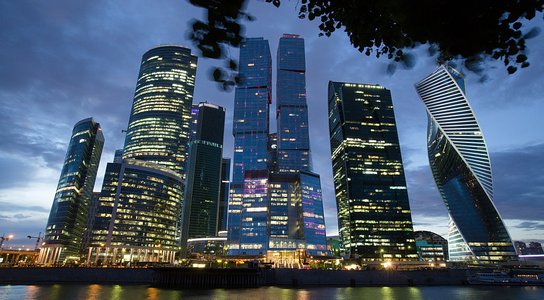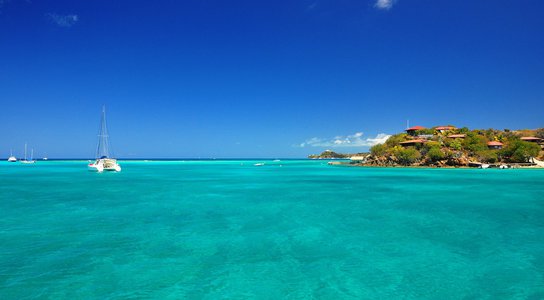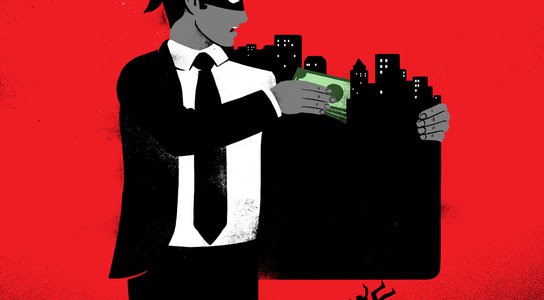New Global Witness investigation shows close relatives and accomplices of Syrian dictator Bashar al-Assad are funnelling money out of Syria into Russia, and possibly beyond.
Several members of the Makhlouf family, once considered to be Syria’s richest family and second only to the al-Assads in power and influence, have purchased at least US$40 million worth of property across two Moscow skyscrapers in the city’s financial district.
Comprising al-Assad’s closest cousins and advisers, the family was estimated to control 60 percent of Syria’s economy before the war. Almost all the Makhloufs are subject to sanctions issued by the European Union and the United States for helping to finance the al-Assad regime or for committing human rights abuses.
“The Makhloufs’ central role in al-Assad’s regime has made them complicit in some of the worst atrocities of the 21st century,” said Isobel Koshiw, investigator at Global Witness. “Whether the funds for their Moscow properties come from the Makhloufs’ private wealth or is cash that they are stashing on behalf of the regime, there is little doubt that the money is tied to grave human rights abuses and corruption in Syria”.
The Makhloufs’ Moscow property, purchased between 2013 and 2019, is mostly office space located in Moscow’s prestigious business district City of Capitals and Federation skyscraper towers.
Global Witness’s investigation has found evidence indicating that the loans obtained against some of the properties appear to be structured to obscure the Makhloufs’ connection to funds moving between Syria and Moscow. This opens the possibility that the money, made to seem unconnected to the Makhloufs, could then be moved from Russia into other jurisdictions, such as the EU, where members of the family are sanctioned.
Russia has been a key ally of the regime in Syria for the last 50 years. It intervened militarily on the al-Assads’ side in September 2015, turning the war in their favour.
“These property purchases are a reminder of the second, more secretive role that Russia has played in supporting al-Assad’s regime,” said Koshiw. “Russian banks have been aiding the al-Assads throughout the war in Syria and our investigation shows that Moscow continues to be a safe haven for Syrian regime money, and possibly a gateway into the international financial system”.
Russia’s biggest bank, the state-owned Sberbank, has done business with at least one of the Makhloufs’ Russian companies that purchased some of the Moscow property. Sberbank has a global presence, dozens of correspondent banking relationships, and Euro and US dollar clearing accounts. Global Witness considers that its business with the Makhlouf-linked companies presents major compliance risks to other banks transacting with Sberbank.
Sberbank did not respond to a request for comment but in the past it has said that it has zero tolerance for money laundering.
The Makhlouf family is led by Mohammed Makhlouf, Bashar al-Assad’s uncle, who was widely known to act as the banker to the al-Assads. Of his five children, four have purchased office space in the Moscow skyscrapers, while the wife and sister-in-law of one of his sons have also bought property in the same building.
Global Witness wrote to all the parties involved to request comment but received no responses. In a rare interview given by Rami Makhlouf in 2011, he claimed he was sanctioned purely for being Assad’s cousin and that Assad did not need his money. In PR materials, one of the younger Makhlouf family members has claimed that the family wealth comes from their business interests in Syria.
The
four Makhlouf brothers are linked either to the financing of the Syrian regime
or its egregious abuses against the Syrian people. Hafez Makhlouf, who bought
the largest amount of property in Moscow out all the family members, was
reportedly a key member of Bashar al-Assad’s inner circle and one of the main masterminds
behind the brutal government crackdown on pro-democracy protestors in 2011.
Global Witness is calling on all financial institutions to ensure that robust due diligence processes are put in place to prevent tainted money, like that of the Makhloufs, entering the global financial system.
/ ENDS
Contacts
Notes to editor:
- Information about the Syrian regime’s assets and finances is notoriously scarce due to the terror fostered by al-Assad’s apparatus at home and abroad.
- The Makhloufs are not subject to any sanctions by Russia, and Global Witness has found evidence that Hafez has lived and operated in Russia freely for several years. Given the Makhloufs’ ability to operate freely in Russia, the use of a complex loan structure that obscures Hafez’s link to these funds seems unnecessary if the intention is for the money to simply remain in Russia; this suggests the money may be moving through Russia and into other jurisdictions.
- Sberbank’s dealings with the Makhloufs are part of a broader pattern of major Russian banks helping the Syrian regime. In 2012 and 2013, both Reuters and Wall Street Journal reported that the al-Assad regime held accounts at Gazprombank and VTB, two of Russia’s largest banks. While Sberbank in Russia is not bound by EU or US sanctions law, it does have branches in major European and US financial centres, including London, Frankfurt and New York. Sberbank also has dozens of correspondent banking relationships, and Euro and US dollar clearing accounts.
- The convoluted nature of the loans taken against the properties should have raised red flags with Sberbank, but it is unclear what – if any – due diligence was carried out on the loans.
- Sberbank’s business with the Makhlouf-linked companies presents major compliance risks to other banks transacting with Sberbank, and should be a red flag to regulators in the jurisdictions in which the Makhloufs are sanctioned and Sberbank has a presence. In past comments to the media, Sberbank has said that “professionalism, transparency and integrity are the bank’s core values. The bank has zero tolerance for those who act contrary.”
- The source of the funds for the property purchases is unknown. It could be from the Makhloufs’ own private wealth, accumulated over years of acting as powerful enablers and profiteers of the regime in Syria, including under al-Assad’s father Hafez al-Assad. Alternatively, it could be funds looted from Syria by other members of the al-Assad regime, and stashed abroad by the Makhloufs. Mohammed Makhlouf, the elderly father of the Makhlouf brothers and Bashar al-Assad’s uncle, was widely known to act as the banker to the al-Assads. It seems, according to US and EU sanctions, that his sons have inherited some of this role.
- Each of the sanctioned Makhlouf family members has challenged the European Council sanctions against them but the European Court of Justice has repeatedly rejected their claims and affirmed the need for sanctions. In a paid-for article in the Baltimore Post Examiner, Mohammed Rami Makhlouf said of his wealth: “The fact is I was born into a family that was well developed in business and has several major companies”.
You might also like
-
Article Assad Henchmen's Russian Refuge
Global Witness estimates that prominent members of the powerful Makhlouf family, cousins of dictator Bashar al-Assad, own at least US$40 million worth of property across two Moscow skyscrapers. Some of the same family members have been key in maintaining al-Assad’s grip on power.
-
Press release New analysis: Five times more Russian money in the UK’s tax havens than in the UK
The amount of money held by Russians in the UK is dwarfed by the amount held in the British Overseas Territories according to new analysis released today by Global Witness.
-
Campaign Corruption and money laundering
Ill-gotten gains don’t disappear by themselves. Dictators, warlords and other criminals need ways to hide their identity and move dirty cash around the world.